People often believe that boxing is only about throwing punches. However, there’s much more to it than that. Boxing is a complex sport requiring various skills if you want to be successful. Brute strength and a strong jaw are just some of the things you need.
Anyone who’s ever stepped into a boxing ring can tell you that the sport is physically and mentally punishing. It takes true grit and determination to go toe-to-toe with an opponent, exchanging blows until one fighter is declared the victor. There are the most critical skills you need to excel in boxing.
Footwork

In boxing, footwork is everything. It’s the foundation upon which all other skills are built, allowing boxers to generate power, maintain balance, and stay agile. Good footwork makes a fighter faster, more accurate, and more explosive. Simply put, if you want to be a good boxer, you must have good footwork.
There are three main aspects of footwork in boxing: posture, movement, and weight distribution. Posture is essential for maintaining balance and generating power. Movement refers to shifting your weight and positioning your feet to create angles and open up striking opportunities. And weight distribution is all about shifting your weight from one leg to another to maintain balance and generate power.
Each aspect is essential in its own right, but they also work together to produce the desired results. For example, you might use a side-to-side movement pattern to create an opening for a jab. Still, if your posture is off or your weight is not distributed correctly, you’ll never be able to land the punch with any real power behind it.
The best way to improve your footwork is to drill the basic movements repeatedly until they become second nature. Once you have the fundamental movement patterns down, you can start adding more complex combinations and working on your speed and accuracy.
Punching Technique
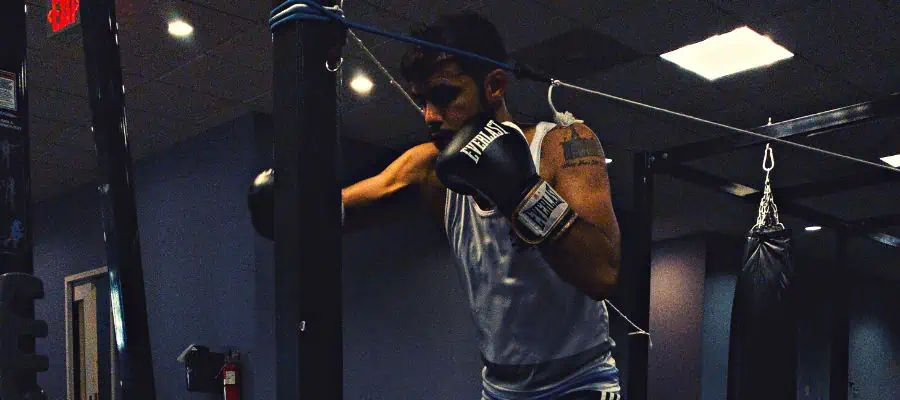
The punching technique is another critical skill in boxing. You need to be able to control your punches and hit your opponent with precision if you want to be successful in boxing. Throwing wild punches might look impressive, but it will only do you good if you can land them on your target.
There are four basic punches in boxing: the jab, the cross, the hook, and the uppercut. Each punch has a specific purpose and target. The jab is a quick, straight punch to set up your other punches. The cross is a powerful right-handed punch that is thrown across your body.
The hook is a curved punch thrown with either hand to catch your opponent off guard. The uppercut is an upward punching motion that is used to hit opponents who are taller than you. To throw a proper punch, you need to use your entire body weight behind it.
Start by shifting your weight onto your back foot and then thrusting your hips forward as you throw the punch. As you make contact with the bag or target, snap your wrist so that your knuckles first make contact with the surface. This will help you deliver maximum impact with each punch.
Punches should be thrown in quick succession for maximum effect. You may feel winded after throwing just a few punches when you first start out. That’s normal! With time and practice, you’ll be able to increase your punching speed and power.
Defensive Skills
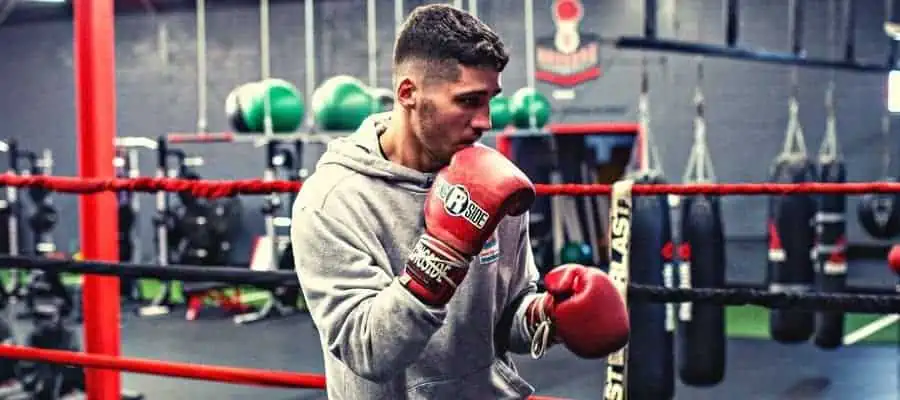
Defensive skills are just as important as offensive skills in boxing. Learning how to properly block, slip, and duck will help you avoid getting hit by your opponent’s punches and give you an edge in the ring. You’ll get knocked out sooner or later if you can’t defend yourself.
A good defense will help you avoid being hit and tire out your opponent. This is because a good defense requires your opponent to throw a lot of punches that do not connect. As your opponent gets tired, their punches become less accurate and powerful. This allows you to take control of the match and land some punches of your own.
There are several things you can do to improve your defense in boxing:
- First, keep your hands up at all times. This will help block some of your opponent’s punches.
- Second, keep moving. This will make it harder for your opponent to land a punch on you.
- Third, pay attention to your opponent’s body language. This will help you anticipate their next move and be able to react accordingly.
Using these techniques, you can become a more defensive boxer and increase your chances of winning a match.
Endurance And Stamina
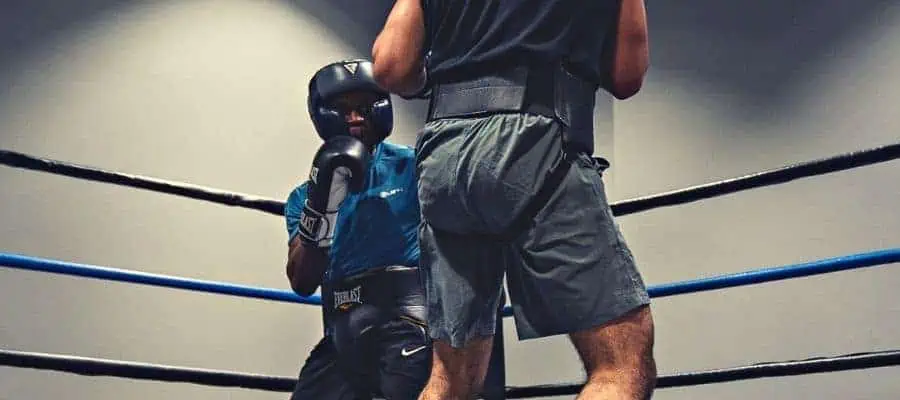
Boxing is an endurance sport. It’s not uncommon for fights to go the distance and last for 10 or 12 rounds. That’s why it’s important to have good cardio endurance if you want to be successful in boxing. Being in shape will help you maintain your energy levels throughout the fight and give you an edge over your opponent.
In boxing, as in life, it’s not about how hard you can hit—it’s about how much you can take and keep going. That’s why boxers who have superior endurance and stamina tend to be more successful than those who don’t. A boxer with good endurance can withstand more punishment and keep going for more extended periods. In contrast, a boxer without good endurance will tire quickly and even get knocked out.
Furthermore, good endurance allows a boxer to maintain a high intensity throughout a fight. This is important because it means that the boxer can continue to apply pressure to their opponent and perhaps even force them to make mistakes. On the other hand, if a boxer doesn’t have good endurance, they may start slow but then fade fast, which will ultimately lead to them losing the fight.
The best way to improve your endurance and stamina is to do aerobic exercises such as running or cycling. These activities help increase your lung capacity and strengthen your heart, which is essential for sustaining long periods of physical activity.
You should also do weight training to build up your muscles; this will help you better withstand the impact of punches during a fight. Finally, make sure to eat a healthy diet and drink plenty of water; being well-nourished will give you the energy you need to survive a tough fight.
Mental Toughness

Mental toughness is another crucial skill in boxing. The sport is as much mental as it is physical. Being able to control your emotions and stay calm under pressure can be the difference between winning and losing a fight.
Mental toughness is the ability to push through difficult situations inside and outside the ring. It’s what separates the good fighters from the great fighters. It’s what allows a fighter to take a punch and keep going. It will enable a fighter to maintain focus and discipline when training for a fight. It’s what allows a fighter to stay calm under pressure. Simply put, mental toughness is essential for any boxer who wants to be successful.
- The first reason mental toughness is important in boxing is the amount of pain inherent in the sport. Boxing is a brutal sport; there is no getting around that. This means that fighters must be tough enough to withstand the constant barrage of punches to the head and body. A fighter who lacks mental toughness will often cave under pressure and take too many hits, which can lead to severe injuries.
- The second reason why mental toughness is important in boxing is because of the fear factor. Some people are naturally more afraid of getting hit than others. This fear can prevent a fighter from performing at their best and achieving their full potential. A mentally tough fighter can control their fear and use it to fuel their performance instead of letting it hinder them.
- The third reason why mental toughness is important in boxing is because of the loneliness factor. Boxing is an individual sport; there is no one else in the ring with you except your opponent. This can be a very daunting and lonely experience for some fighters. A mentally tough fighter can use this loneliness to their advantage by channeling it into focus and determination.
Hand Speed
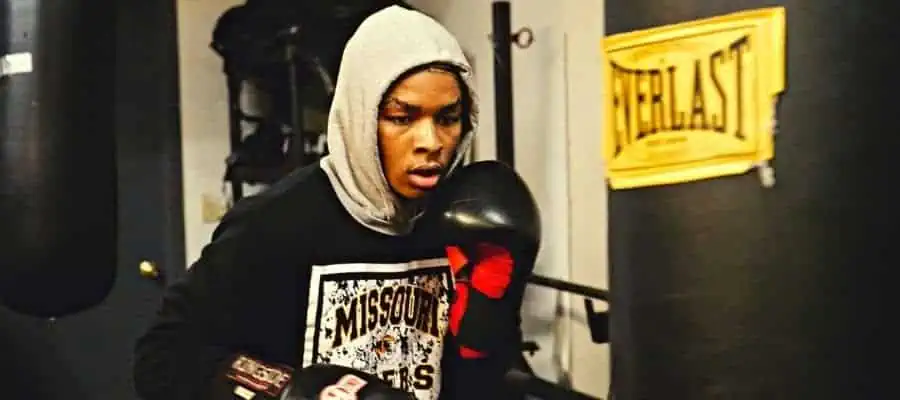
Hand speed is another critical skill in boxing. The faster you can throw punches, the more likely you will land them on your target. This will also help you create openings for your punches and set up combinations.
In the sport of boxing, hand speed is an important skill. Having quick hands can help you get in and out of exchanges quickly. Also, it can help you score points by landing punches before your opponent has a chance to defend themselves.
While hand speed is important for all boxers, it is crucial for those who fight in the lighter-weight classes. This is because the lighter-weight classes require boxers to be quicker on their feet and have faster reflexes.
If you want to improve your hand speed, you can do a few things:
- First, you can work on your overall fitness. This means doing things like cardiovascular exercises to improve your heart health and lung capacity.
- Second, you can work on your punching technique. This means practicing your punches in the air or on a punching bag and focusing on snapping your wrists when you land a punch.
- Third, you can use hand weights or resistance bands to add resistance to your punches and strengthen your muscles.
- Fourth, you can use a speed or double-end bag to improve hand-eye coordination and timing.
Power
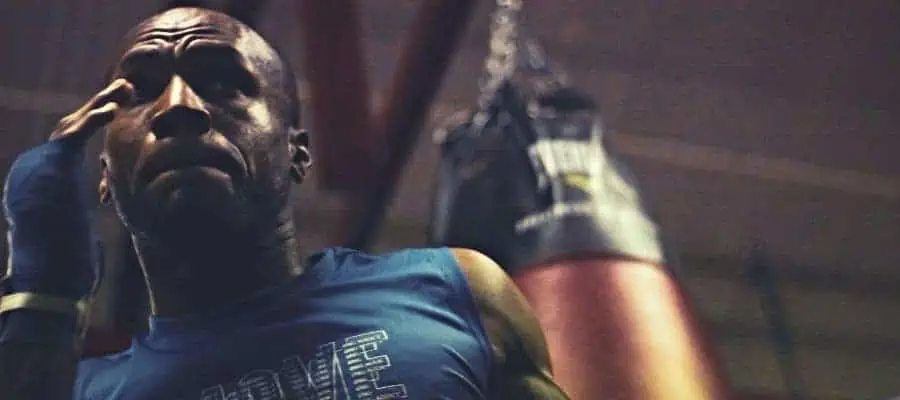
While hand speed is important, other things matter regarding punching power. Proper technique and body mechanics are also crucial if you want to generate maximum power in your punches.
Of course, you can only go into the ring and start swinging for the fences after first building up your physical strength. A good strength training program will help you develop the muscles to throw powerful punches.
This doesn’t just mean lifting weights; you should also focus on functional exercises that train your body to move in the way it needs to when you’re boxing. In particular, exercises that work your core and legs will help transfer power from your lower body up through your torso and into your arms. This is how you’ll generate real knockout power.
Agility
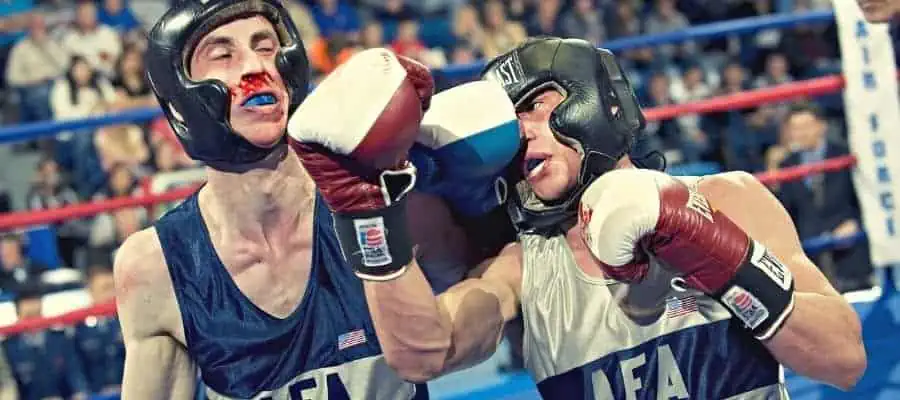
Agility is the ability to change direction quickly while maintaining balance and control. In boxing, being able to move nimbly around the ring can be the difference between landing a knockout blow and getting hit yourself. It’s also important for avoiding your opponent’s punches and, as anyone who’s ever been punched knows, getting hit hurts!
There are a few different ways to improve your agility. One way is to go for a run; this will help improve your cardiovascular endurance and leg strength, which are important for agile movement. You can also do specific agility drills, such as weaving between cones or jumps.
Even agility training programs are available that use plyometrics (jumping exercises) to help improve power, explosiveness, and speed – all of which are critical components of agility.
Creating Pressure
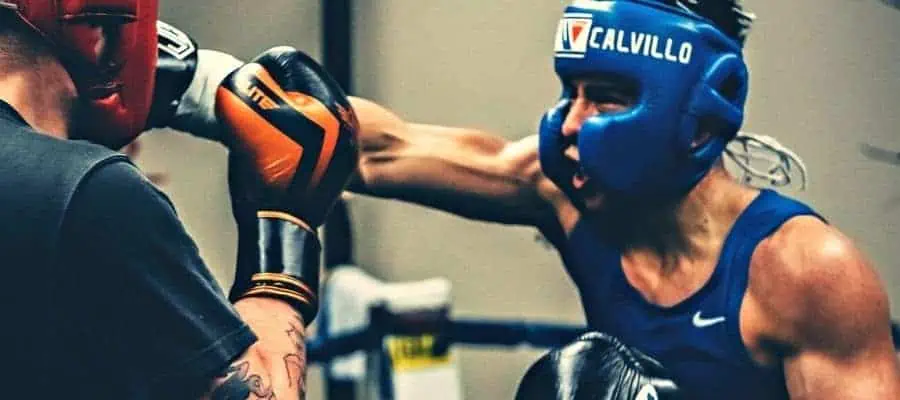
In boxing, creating pressure is an important skill. By definition, pressure is another object’s force applied to an object. In boxing, creating pressure means throwing many punches and not allowing your opponent a chance to breathe. It’s about being aggressive and making your opponent feel uncomfortable.
When you can apply pressure, you force your opponent to make mistakes. And when your opponent makes mistakes, that’s when you can take advantage and land some big shots. The key is maintaining a high energy level throughout the fight. If you can do that, you’ll be able to apply a lot of pressure on your opponent and eventually wear them down.
You need to do a few things to create pressure on your opponents. First, you need to have a high work rate. This means throwing many punches and staying active throughout the fight. You can’t afford to take breaks because that will give your opponent time to recover and regroup. Second, you need to be very accurate with your punches.
This means throwing straight punches that land cleanly on your target. Third, you need good footwork. This will allow you to move around the ring quickly and effortlessly to stay in front of your opponent and maintain offensive pressure. Lastly, you need a lot of heart and determination because creating pressure is not easy. It takes a lot of energy and stamina to keep up the pace for an entire fight.
Playing Mind Games

Playing mind games might sound like something that only happens in movies or television. Still, it’s actually a very real and important part of boxing. Here’s why: if you can get inside your opponent’s head, you can throw them off their game. This gives you a massive advantage in the ring.
You can play mind games with your opponent in a few different ways. One way is by trash-talking. This involves getting under your opponent’s skin by saying things that will provoke an emotional reaction. This can be anything from questioning their abilities to mocking their appearance. The key is finding something that will get them angry or upset without losing focus on the match.
Another way to play mind games is using body language to your advantage. For example, if you act like you’re not afraid of your opponent, even if you are, they may start to doubt their own ability to win. On the other hand, if you act like you’re injured when you’re not, your opponent may let their guard down, thinking they have an easy win.
Reaction Time
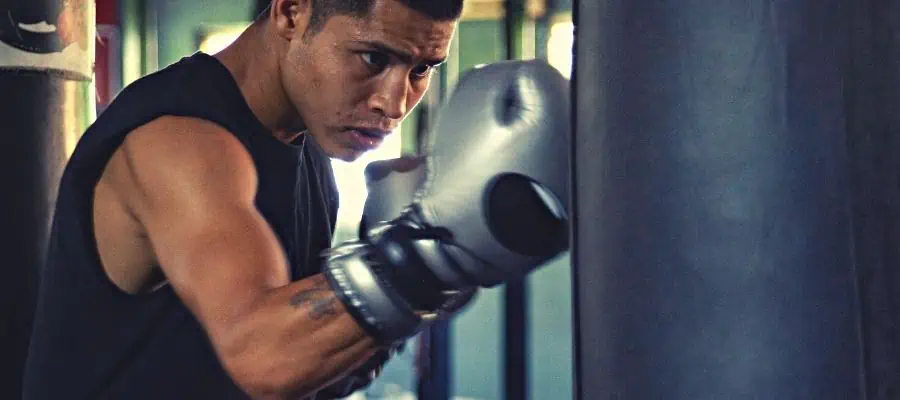
Reaction time is simply the amount of time it takes your body to register a stimulus and respond accordingly. In boxing, reaction time is important because it’s the difference between getting hit and countering with a punch of your own.
A boxer with faster reflexes can avoid more punches and deliver more counter-punches, giving them a significant advantage over their opponent. There are a few things you can do to improve your reaction time:
- First, try doing some quick drills that require you to react quickly, such as catching a ball or tapping a button as fast as possible.
- You can also incorporate some plyometric exercises into your workout routine, as these have improved reaction times.
- Finally, ensure you’re getting enough sleep and eating healthy foods, as both play a role in how well your body functions.
Situational Awareness

Situational awareness is the ability to understand what is happening around you and to make informed decisions based on that information. In boxing, situational awareness allows you to quickly assess an opponent’s strengths and weaknesses and make strategic decisions accordingly.
For example, suppose your opponent likes to throw heavy punches. In that case, you can use that knowledge to avoid getting hit and counter with your own punches. This includes things like knowing when to throw a counterpunch or when to take a step back to avoid a punch.
Another important part of situational awareness is knowing the ring. Where are the ropes? Where is the corner? Where are the judges? Knowing the layout of the ring will help you better position yourself to avoid getting hit or to deliver a more powerful punch.
A Good Jab
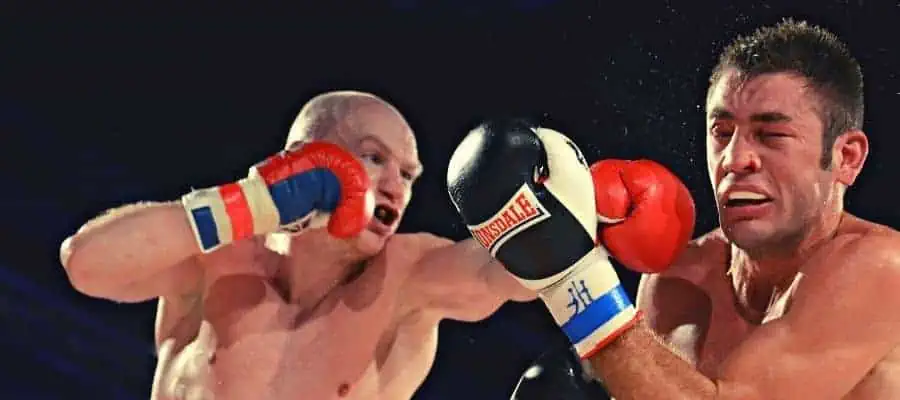
A good jab is one of the most essential skills in boxing. So, what exactly is a jab? A jab is a quick, direct punch thrown with the lead hand. Jabs are usually used to keep an opponent at bay or to set up other, more powerful punches. While jabs don’t pack as much power as hooks or uppercuts, they can still be very effective if used correctly.
Jabs are most often used to keep an opponent from getting too close. You can force your opponent to back up and give yourself some breathing room by throwing quick, sharp jabs. Jabs can also set up other punches by causing your opponent to flinch or lose their balance.
If you can land a good jab on an opponent’s chin, for example, you may be able to follow up with a powerful right cross that can knock them out.
Head Movement
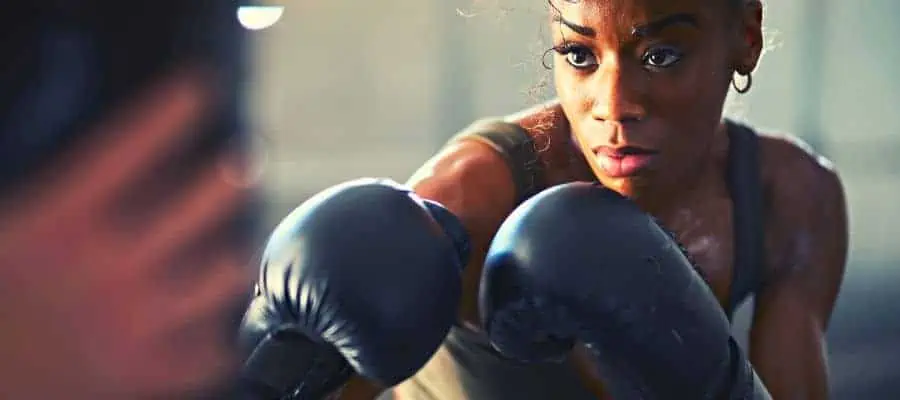
Head movement is important in boxing for a few reasons. First, it makes you a smaller target. When you keep your head moving, your opponent has to constantly adjust their aim, which makes it harder for them to land clean shots. Second, good head movement will help you avoid getting hit with punches. Third, it helps you counter-punch and creates openings for your own shots. And finally, the head movement keeps you balanced and from getting off-center when you get hit with punches.
Now that we know why head movement is so important, let’s talk about how to improve your own head movement.
- The first thing you need to do is relax your body and keep your chin down.
- Then, start moving your head from side to side and up and down. Always keep your chin down—this will protect it from getting hit.
- As you get more comfortable with the movements, start adding small steps to help you avoid punches while staying in a position to counter-punch.
A Strong Jaw

A strong jaw offers many benefits to boxers. One of the most obvious is that it helps absorb the impact of punches and protects the brain from damage. A strong jaw can also give you a psychological edge over your opponents.
Unfortunately, there is no magic pill that will instantly give you a strong jaw. However, there are some things you can do to improve the strength of your jaw. Your neck is the primary muscle group that supports your head (jaw), so strengthening your neck muscles will also help to strengthen your jaw. You can do this by doing exercises such as neck curls, neck bridges, and head lifts.
There is no signal professional boxer who explicitly doesn’t train his or her neck for fights. A strong neck will help you take punches better and also make your punches harder.
Conclusion
As you can see, there are a lot of essential skills that boxers need to master to be successful. While some of these skills may come more naturally to some people, the good news is that they can all be learned with practice. So, if you’re serious about becoming a boxer, focus on improving all the skills mentioned above.
Recent Posts
What is Manachai's Fighting Style? Unveiling Muay Thai Mastery
Manachai, a celebrated figure in the Muay Thai world, has captivated audiences with his exemplary martial prowess. Hailing from the heartlands of Thailand, his name is synonymous with the art of...
What Was Chamuekpet Hapalang's Fighting Style? Unveiling Techniques
Chamuekpet Hapalang was a renowned figure in the world of Muay Thai (record 200-48-2), embodying a fusion of Muay Bouk and Muay Khao styles. Originating from Thailand, the art of Muay Thai is known...
